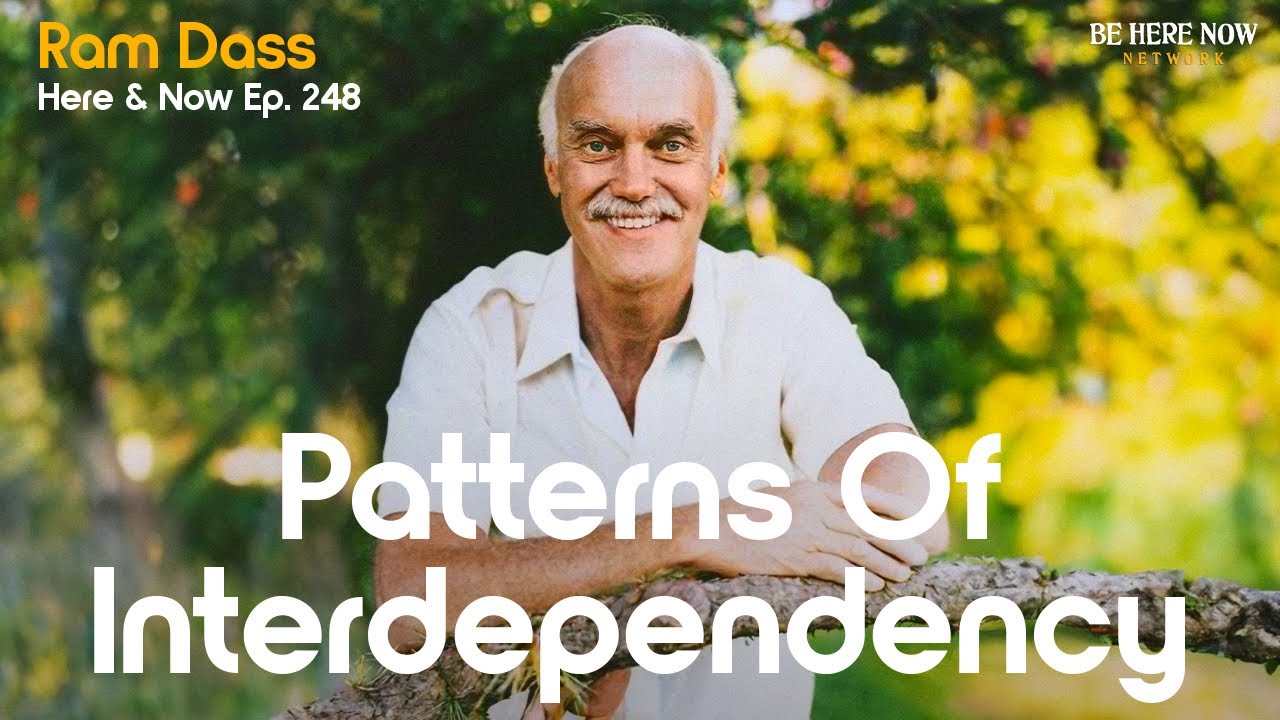Speaking to issues of ecology, politics, and social action, Ram Dass shares stories of compassionate action and explores patterns of interdependency we can recognize in the world.
This episode of Here and Now is from a 1992 talk in Edgartown, MA.
- Ram Dass discusses our looming ecological crisis, politics, and living in the age of the Kali Yuga. There is change happening all around us. For Ram Dass, what’s interesting is where one stands in relation to change.
- How do we respond in an appropriate way to all the suffering in the world around us? Ram Dass shares classic stories of compassionate action and talks about the constant dialogue between the mind and the heart.
- Ram Dass explores how moving through different planes of reality can help us recognize the incredible patterns of interdependency in this world. By acknowledging that these other planes exist, we can find a way to be fully in the world and simultaneously not be trapped by it. In this way, we’re able to keep our hearts open in hell.
“The way we short-shrift ourselves is by not acknowledging that these other planes of consciousness are equally real. They’re equally real. And that certain planes of consciousness we know primarily through our intuitive hearts, where we are part of everything. What we’re facing at the moment is that the limits we’ve imposed on our definitions of reality are now dysfunctional to the predicament we find ourselves in. Because we have got to recognize that we are interdependent with the earth and all the species. We have to recognize that we are interdependent with other human beings in all kinds of conditions around the world. Because our technology demands it. We have to find a way to be in the world, fully, and simultaneously not be trapped by it. We have the opportunity to acknowledge that we are both separate entities and not separate entities. That we are both unique and part of one thing. And it is that balance or tension about reality that changes the nature of the game.” – Ram Dass
